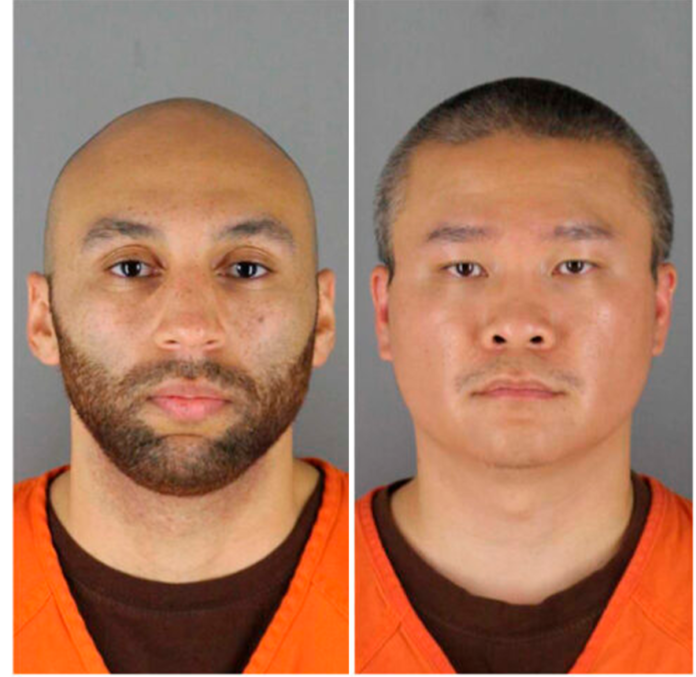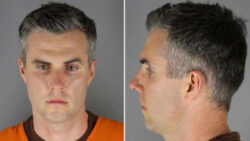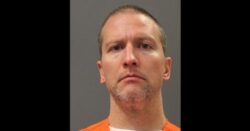
By Steve Karnowski and Amy Forliti, Associated Press
The judge overseeing the remaining case of two former Minneapolis police officers charged in George Floyd’s killing ordered Monday that the trial be delayed until January to improve prospects for a fair trial.
Tou Thao and J. Alexander Kueng had been due to go on trial next Monday on charges of aiding and abetting second-degree murder and second-degree manslaughter in the May 2020 death of Floyd. But Hennepin County Judge Peter Cahill on Monday ordered that trial be delayed until Jan. 5.
Cahill denied a defense motion for a change of venue due to the extensive pretrial publicity surrounding the case. But he said media reports and recent events surrounding connected cases have created “a reasonable likelihood of an unfair trial” if it were to begin next week.

Cahill cited the May 18 guilty plea by Thao and Keung’s co-defendant, former Officer Thomas Lane. He also cited the convictions of Thao, Kueng and Lane on federal civil rights charges in a separate trial in federal court in February.
The judge said those two events and the publicity surrounding them are significant enough to make it difficult for jurors to presume that Thao and Kueng are innocent of the state charges against them. So, he ordered the delay, just shy of seven months, to diminish the effects of that publicity.
Cahill also presided over last year’s trial of former Officer Derek Chauvin, which ended in a conviction for second-degree murder and a 22 1/2-year sentence for the white officer who kneeled on the Black man’s neck for 9 1/2 minutes despite Floyd’s fading pleas of “I can’t breathe.” The killing led to protests worldwide and a national reckoning on racial injustice.
The judge denied a motion by a coalition of media organizations, including The Associated Press, to reconsider his decision in April to prohibit live audiovisual coverage of the proceedings from gavel to gavel. But he said he may reconsider if the Minnesota state court system revises its rules on cameras in the courts by Jan. 4.
Bob Paule, an attorney for Thao, said he thought the decision “was a thoughtful and well-reasoned decision by Judge Cahill.”
Minnesota Attorney General Keith Ellison, whose office is prosecuting the case, said in a statement: “It’s unfortunate for the victims, the witnesses, and community that the opportunity to seek justice has been delayed. The State was ready for trial next week and will be ready next January.”
A message left for Kueng’s attorney was not immediately returned Monday.
The revised schedule that Cahill laid out calls for hearing pretrial motions Jan 5-6, with jury selection beginning Jan. 9. Questionnaires will be mailed to a new pool of “several hundred” potential jurors around Sept. 1. Opening statements are set for Jan. 30.
In denying a change of venue, Cahill wrote that he is satisfied that a fair and impartial trial can be held in Hennepin County “eventually,” noting that it’s the most populous and diverse county in the state. He said attorneys will get to select jurors from a panel “that will surely exceed 200” after the lengthy questionnaires designed to screen out bias are returned.
Alan Tuerkheimer, a Chicago-based jury consultant, said the reason for the postponement seems like “strange rationale.” He said he doesn’t see how a potential juror’s bias would subside with the passage of time. He said with effective questioning, “jurors with bias can be weeded out today or tomorrow or in early 2023.”
He added that while other events that will happen between now and January will consume jurors’ minds, “feelings about these cops will not just vanish over time. As trial approaches in January it will all come back to those who followed this case. For those who haven’t, the passage of time doesn’t matter.”

Chauvin has been in prison since his conviction on the state murder charge, while Thao, Keung and Lane remain free on bail pending their federal sentencings.
Cahill’s order said he won’t entertain any potential plea agreements from Thao or Kueng until 15 days after their federal sentencings. They rejected plea deals from prosecutors earlier.
Minnesota court rules normally bar audio and video coverage of a criminal trial unless all parties consent, and the defense in this case has objected. Cahill made an exception for Chauvin’s trial to ensure safe public and media access amid the COVID-19 pandemic, and it drew worldwide viewership. But he ruled in April that the pandemic had abated to the point that he’s bound by normal court rules.
A special advisory committee that’s been studying those rules is due to deliver a nonbinding report next month to the Minnesota Supreme Court. There’s no deadline for a final decision, but the delay in the trial revives the possibility that the proceedings for Thao and Kueng could be livestreamed.
U.S. District Judge Paul Magnuson has not set dates for sentencing Chauvin, Thao, Kueng and Lane on their federal civil rights convictions. Defense attorneys said during a hearing before Cahill last week that they were expecting the sentencings sometime in September. Chauvin pleaded guilty to a civil rights charge in December, while the other three went to trial.


